
Kimbe: A Tropical Haven in Papua New Guinea
Kimbe, nestled on the shores of the picturesque Kimbe Bay in Papua New Guinea, offers a rare blend of natural beauty and cultural richness. Known for its stunning marine biodiversity, Kimbe is a paradise for divers and nature enthusiasts alike. The waters of Kimbe Bay are home to over 60% of the coral species found in the Indo-Pacific region, making it one of the most vibrant underwater ecosystems in the world. Visitors can explore an array of dive sites, where they can witness colorful coral gardens, diverse marine life, and even historic shipwrecks. Beyond its underwater wonders, Kimbe also boasts lush rainforests and volcanic landscapes. Trekking through the dense jungles reveals a variety of flora and fauna, including exotic bird species and rare orchids. The nearby hot springs and active volcanoes add a touch of adventure to the natural surroundings. The town itself is a gateway to the rich cultural heritage of the region, with local markets offering a glimpse into the daily lives of the indigenous people and their traditional crafts. Kimbe's warm and welcoming community adds to the charm of this tropical haven. Visitors can experience traditional dance performances and cultural festivals that celebrate the local way of life. Whether you are looking to dive into the depths of the sea, trek through verdant forests, or immerse yourself in local culture, Kimbe promises an unforgettable journey in one of Papua New Guinea's hidden gems.
Local tips in Kimbe
- Hire a local guide for trekking. They can provide valuable insights and ensure your safety in the dense rainforest.
- Visit the local markets early in the morning to experience the freshest produce and vibrant atmosphere.
- Check the diving season before planning your trip to ensure optimal underwater visibility and marine life sightings.
- Respect local customs and traditions. Always ask for permission before taking photos of people or cultural sites.
- Bring insect repellent and sun protection. The tropical climate can be harsh on the skin.
Kimbe: A Tropical Haven in Papua New Guinea
Kimbe, nestled on the shores of the picturesque Kimbe Bay in Papua New Guinea, offers a rare blend of natural beauty and cultural richness. Known for its stunning marine biodiversity, Kimbe is a paradise for divers and nature enthusiasts alike. The waters of Kimbe Bay are home to over 60% of the coral species found in the Indo-Pacific region, making it one of the most vibrant underwater ecosystems in the world. Visitors can explore an array of dive sites, where they can witness colorful coral gardens, diverse marine life, and even historic shipwrecks. Beyond its underwater wonders, Kimbe also boasts lush rainforests and volcanic landscapes. Trekking through the dense jungles reveals a variety of flora and fauna, including exotic bird species and rare orchids. The nearby hot springs and active volcanoes add a touch of adventure to the natural surroundings. The town itself is a gateway to the rich cultural heritage of the region, with local markets offering a glimpse into the daily lives of the indigenous people and their traditional crafts. Kimbe's warm and welcoming community adds to the charm of this tropical haven. Visitors can experience traditional dance performances and cultural festivals that celebrate the local way of life. Whether you are looking to dive into the depths of the sea, trek through verdant forests, or immerse yourself in local culture, Kimbe promises an unforgettable journey in one of Papua New Guinea's hidden gems.
When is the best time to go to Kimbe?
Iconic landmarks you can’t miss
Port Moresby Nature Park
Discover the breathtaking biodiversity of Papua New Guinea at Port Moresby Nature Park, a blend of botanical gardens, wildlife, and recreation.
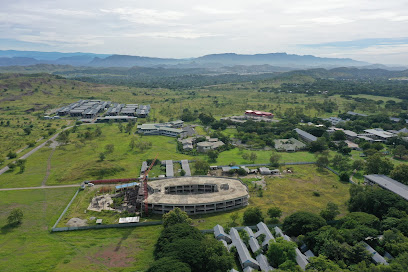
Lae Botanic Gardens
Explore the stunning Lae Botanic Gardens in Papua New Guinea – a serene escape filled with lush tropical flora and tranquil walking paths.
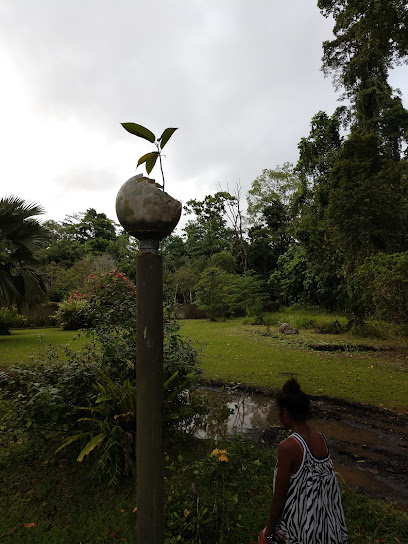
Liamo Reef Resort - Kimbe International Hotel
Discover the serene beauty of Liamo Reef Resort, a luxurious escape in Kimbe offering stunning views, exciting activities, and top-notch amenities.
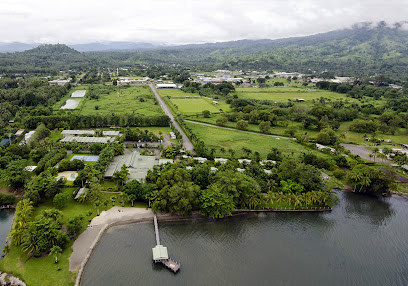
Walindi Plantation Resort
Experience the serene beauty of Walindi Plantation Resort, a tropical paradise offering world-class diving, bird watching, and unforgettable cultural experiences.
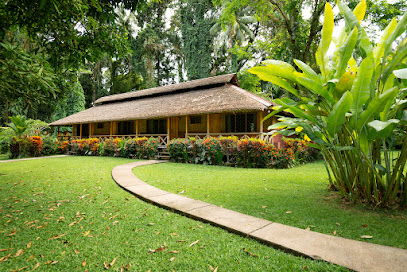
BNBM KIMBE BRANCH
Explore the BNBM Kimbe Branch in Kimbe, West New Britain for quality building materials and local insights in a vibrant community setting.

Kimbe Bay Hotel
Discover tranquility and adventure at Kimbe Bay Hotel, your ideal retreat in Papua New Guinea's stunning West New Britain Province.
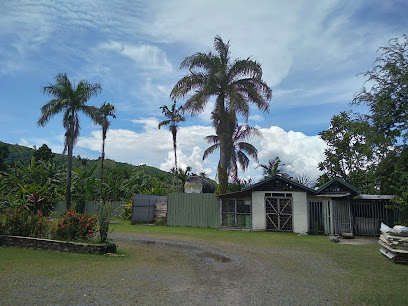
Kokopo War Museum
Explore the rich military history of Papua New Guinea at Kokopo War Museum, where artifacts and stories reveal the past.
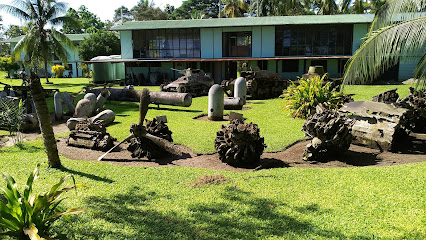
Genesis Haven Lodge
Experience the serenity and natural beauty of West New Britain Province at Genesis Haven Lodge, your perfect retreat in Kimbe.
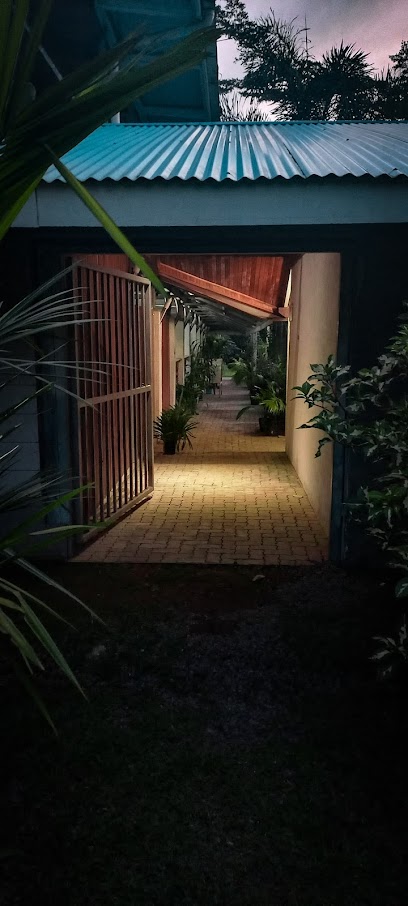
Admiral Yamamoto's Bunker
Explore the historical significance of Admiral Yamamoto's Bunker in Rabaul, a must-visit site for history enthusiasts and adventure seekers.
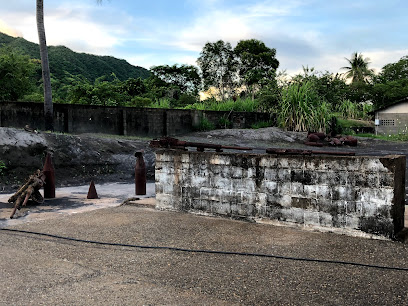
Amelia Earhart Memorial
Discover the Amelia Earhart Memorial in Lae, a tribute to aviation's pioneer spirit amidst Papua New Guinea's stunning landscapes.
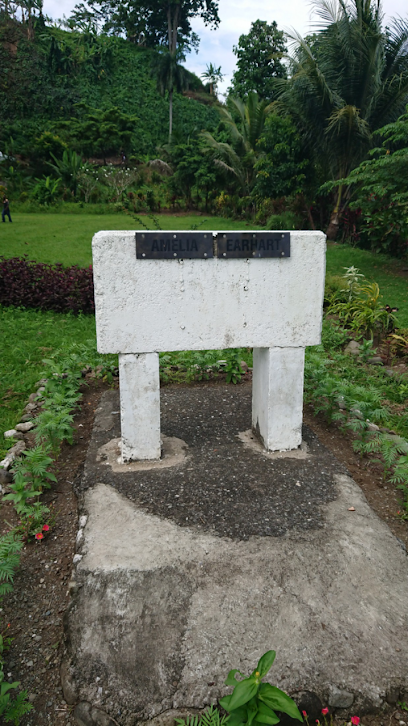
Bomana War Cemetery
Discover the solemn beauty and historical significance of Bomana War Cemetery, a moving tribute to the soldiers of World War II in Papua New Guinea.
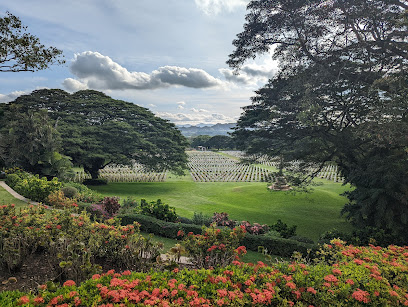
Manaia Guesthouse
Discover the charm of Kimbe at Manaia Guesthouse, where comfort meets local culture in the heart of West New Britain Province.
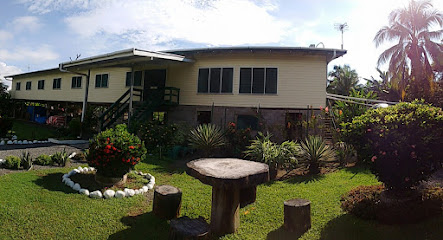
Bitapaka War Cemetery
Explore the serene Bitapaka War Cemetery, a poignant tribute to those who sacrificed their lives in the Pacific War, nestled in the lush landscapes of East New Britain.
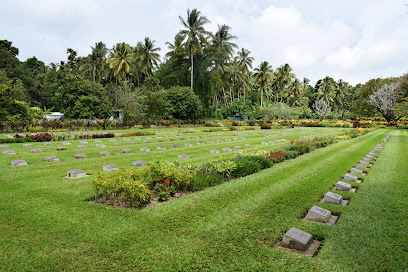
Able Home & Office PNG - Kimbe Branch
Experience comfort and convenience at Able Home & Office in Kimbe, your gateway to the wonders of West New Britain Province.
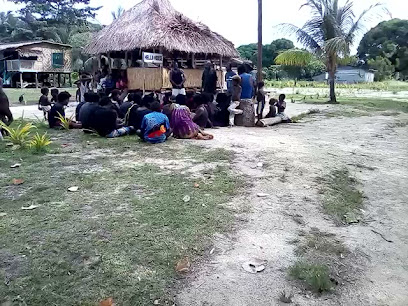
Kimbe Bay
Explore Kimbe Bay in Papua New Guinea for breathtaking diving, vibrant marine life, and rich cultural experiences in a stunning tropical paradise.
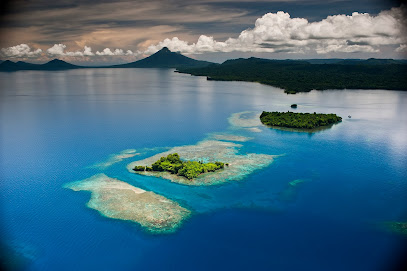
Unmissable attractions to see
Walindi Plantation Resort
Experience the natural beauty and adventure at Walindi Plantation Resort, your gateway to diving and eco-friendly activities in Papua New Guinea.
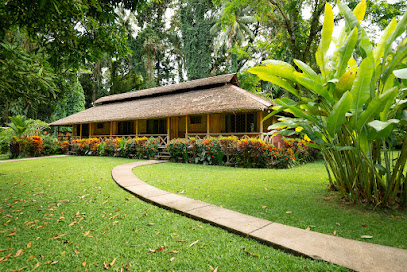
Muthuvel stadium
Experience the vibrant local culture and thrilling sports at Muthuvel Stadium in Kimbe, a must-visit attraction in West New Britain Province.
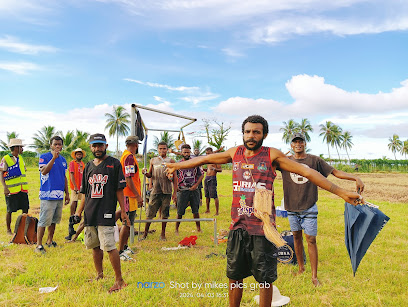
Garbuna Volcano
Explore the stunning landscapes and rich biodiversity of Garbuna Volcano, a must-visit hiking destination in Papua New Guinea's West New Britain.
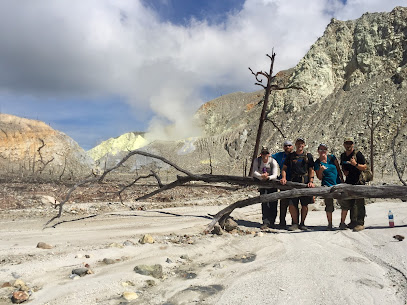
Dami Beach
Experience the idyllic charm of Dami Beach, a hidden paradise in West New Britain with pristine sands, vibrant waters, and local culture.
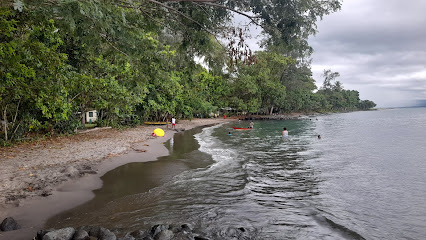
Fathers Reefs
Immerse yourself in the stunning beauty of Fathers Reefs, a premier snorkeling destination in the Bismarck Sea, showcasing breathtaking marine life and idyllic scenery.
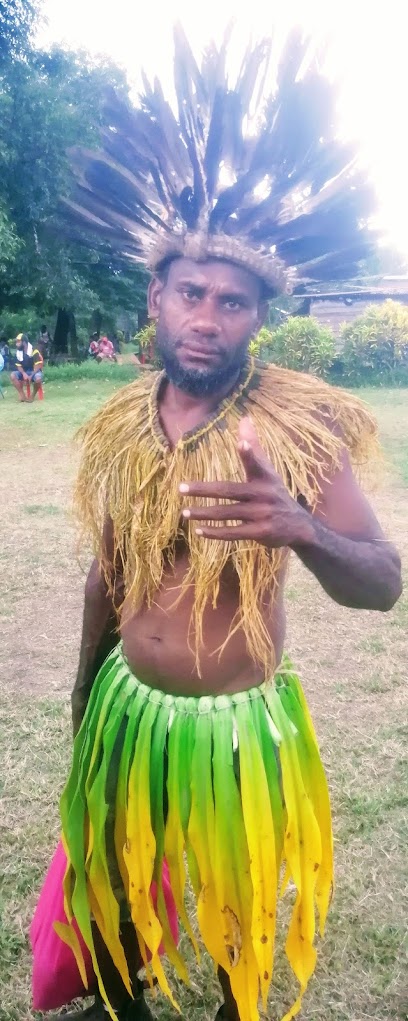
Fringe-Mahonia
Discover the serene beauty of Fringe-Mahonia, a nature preserve in Rilu, Papua New Guinea, rich in biodiversity and stunning landscapes.

Danau Dakataua
Experience the tranquil beauty and vibrant wildlife at Danau Dakataua, a serene lake in West New Britain Province, Papua New Guinea.

Myzomela Forest
Experience the breathtaking beauty and rich biodiversity of Myzomela Forest in West New Britain Province, a true paradise for nature lovers.

Patanga Waterfall
Experience the enchanting Patanga Waterfall in West New Britain, a serene escape into nature's beauty, perfect for relaxation and adventure.

Touring Island Vulai
Explore the stunning Wulai Island in West New Britain Province, where natural beauty meets rich cultural heritage in a tropical paradise.
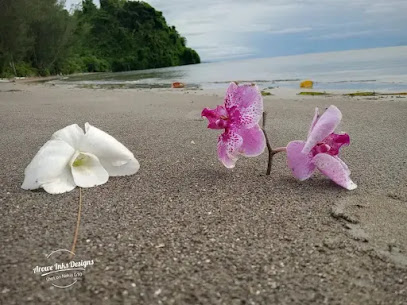
Essential places to dine
Liamo Reef Resort - Kimbe International Hotel
Experience luxury and adventure at Liamo Reef Resort - your ultimate getaway in Kimbe Bay with stunning views and exceptional services.
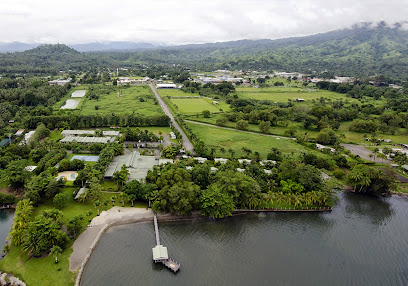
Hotel Genesis
Discover comfort at Hotel Genesis in Kimbe—your gateway to exploring West New Britain's natural beauty and rich culture.

Seoul House Restaurant
Discover authentic Korean flavors at Seoul House Restaurant in Port Moresby - a culinary journey awaits!
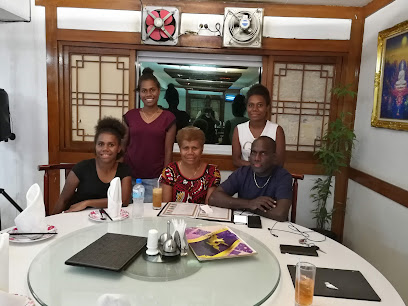
Walindi Plantation Resort
Discover unparalleled beauty at Walindi Plantation Resort - your gateway to adventure and relaxation in Papua New Guinea's pristine paradise.
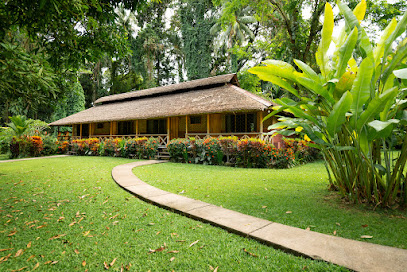
Apple Mango Cafe
Experience authentic Papua New Guinean flavors at Apple Mango Cafe in Kimbe - where every bite tells a story.
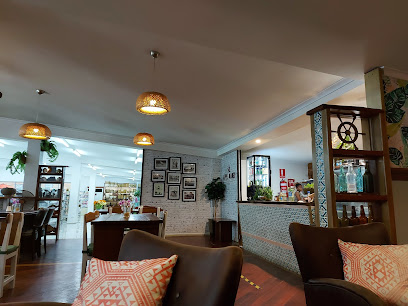
Kimbe Bay Hotel
Experience tranquility at Kimbe Bay Hotel, where stunning coastal views meet warm hospitality in West New Britain.
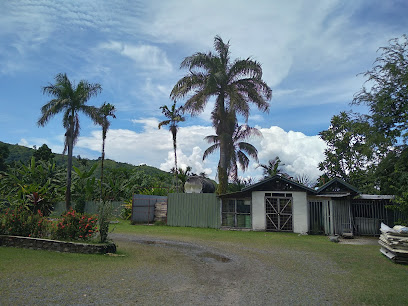
San Remo Club Inc
Experience vibrant nightlife at San Remo Club Inc in Kimbe – where locals gather for drinks, laughter, and unforgettable memories.
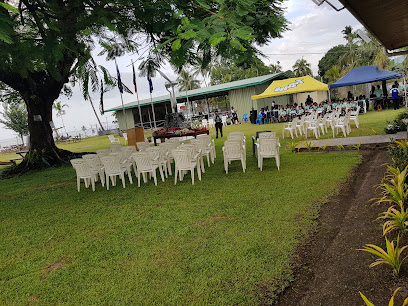
Genesis Haven Lodge
Discover the serene beauty and warm hospitality at Genesis Haven Lodge in West New Britain Province, your perfect escape into nature's embrace.
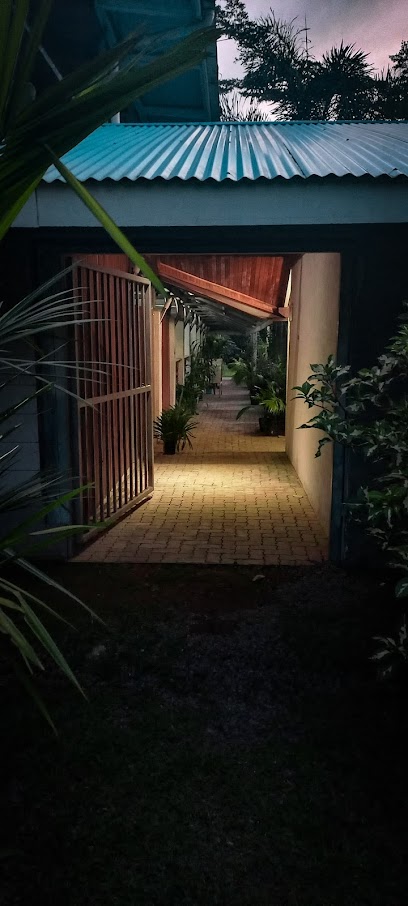
Manaia Guesthouse
Discover tranquility at Manaia Guesthouse in Kimbe – your perfect retreat for relaxation, adventure, and exceptional hospitality.
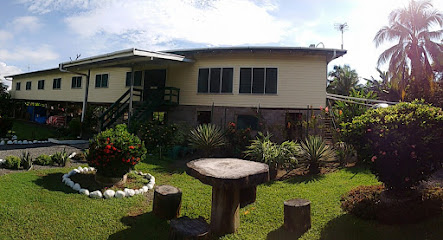
Tikara Restaurant
Experience exquisite local cuisine and breathtaking ocean views at Tikara Restaurant in Kimbe's Liamo Reef Resort.
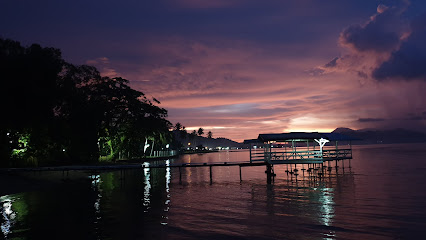
New Management Club -Mosa NBPOL(NMC)
Experience vibrant nightlife at New Management Club - Mosa NBPOL, where refreshing drinks meet local culture in West New Britain.
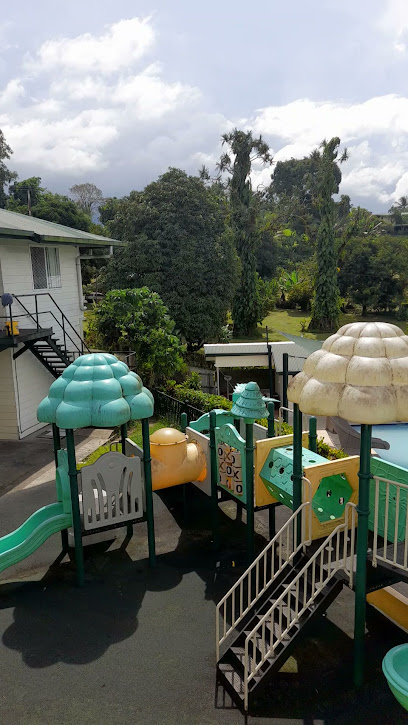
Lobeku Lodge
Discover culinary delights and tranquil accommodations at Lobeku Lodge in beautiful Kimbe, West New Britain Province.

GFC(Golden Fried Chicken)
Discover the rich flavors of Golden Fried Chicken in West New Britain – where every bite takes you closer to local culinary traditions.
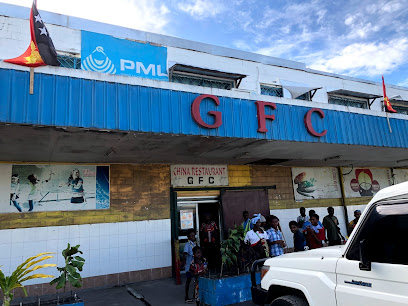
Kokomo Bar
Experience coastal relaxation at Kokomo Bar in Kimbe - your perfect retreat for drinks and stunning ocean views.
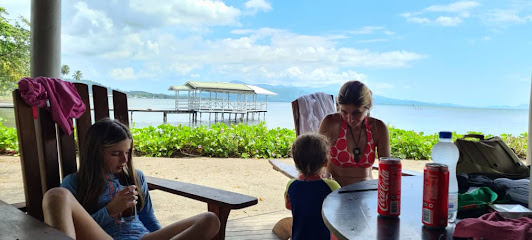
Turtle Coffee Shop
Discover tranquility at Turtle Coffee Shop in Kimbe—your go-to spot for fresh coffee and serene ocean views.
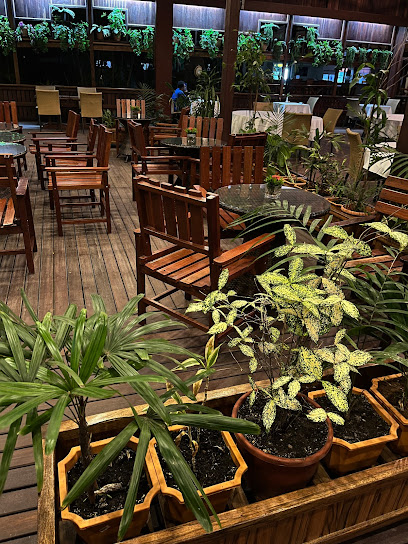
Markets, malls and hidden boutiques
Kimbe Market
Discover the vibrant atmosphere of Kimbe Market, where local culture, fresh produce, and unique crafts come together in a colorful shopping experience.
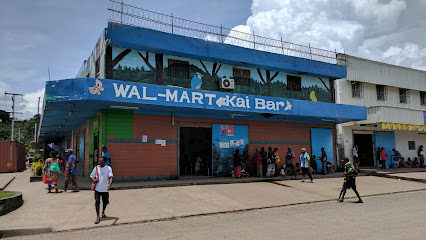
7-mart Supermarket
Explore the vibrant flavors of West New Britain at 7-mart Supermarket, your essential shopping destination for local delights.
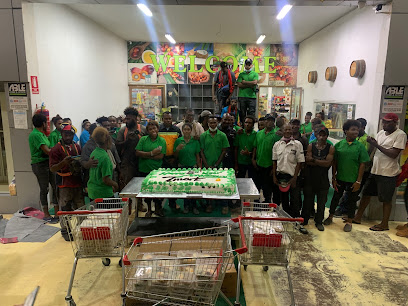
BNBM KIMBE BRANCH
Discover quality building materials at BNBM Kimbe Branch, where affordability meets local craftsmanship in West New Britain Province.
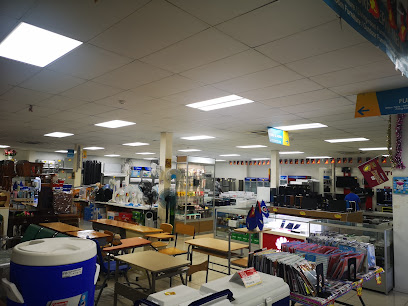
KBSA Hardware
Discover KBSA Hardware in Kimbe, your go-to store for essential tools and supplies in Papua New Guinea's vibrant West New Britain region.
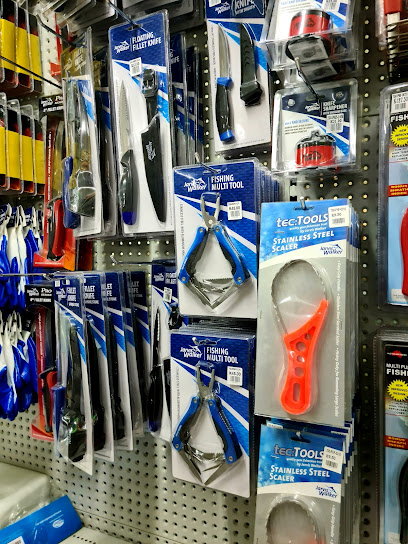
Papindo Supermarket
Discover local treasures and vibrant culture at Papindo Supermarket in Kimbe, West New Britain Province.
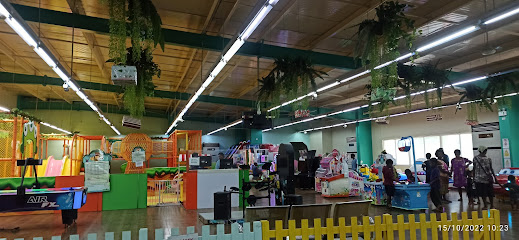
Hardware Haus Kimbe
Explore Hardware Haus Kimbe for all your DIY and home improvement needs in the heart of West New Britain Province.

Kmart Supermarket
Explore Kmart Supermarket in Kimbe for all your electronic needs, from gadgets to essential tech gear, ensuring your travels are connected and enjoyable.

Malama Enterprises Pty Ltd
Explore Malama Enterprises Pty Ltd: Your ultimate destination for top-quality electronics in Kimbe, West New Britain, Papua New Guinea.
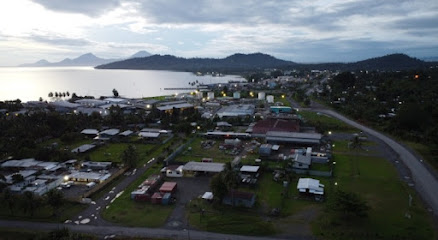
Welcome Store
Explore the vibrant Welcome Store in West New Britain, a shopping mall offering unique local crafts, delicious cuisine, and a taste of Papua New Guinea's culture.

Spirit Of West
Discover the vibrant shopping and cultural experience at Spirit Of West, the heart of Kimbe's retail and culinary landscape.
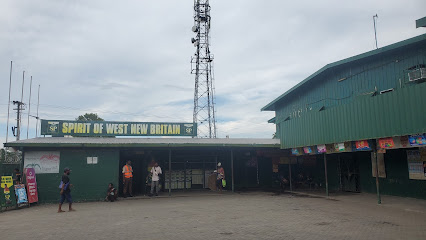
Farmset Limited
Discover Farmset Limited in Kimbe for top-notch farm equipment and an insight into the vibrant agricultural practices of West New Britain Province.
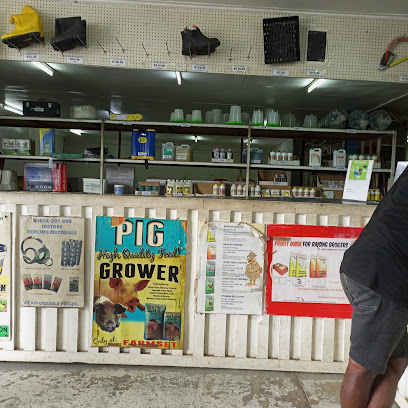
Rait Price
Experience the vibrant culture and shopping delights of Rait Price Shopping Mall in Kimbe, your gateway to local crafts and flavors.

Jelan Trading
Explore Jelan Trading in Kimbe for unique home goods that blend local craftsmanship with modern design, perfect for souvenirs or home decor.

JJ MART 1
Discover the vibrant local culture and unique products at JJ Mart 1, your go-to shopping destination in Kimbe.
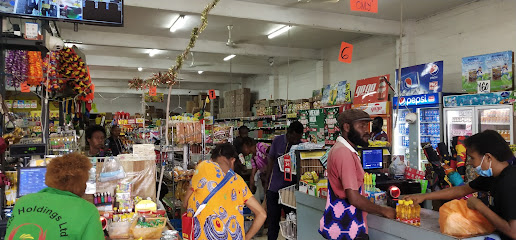
Brian Bell
Explore Brian Bell in Kimbe for an unforgettable shopping experience featuring local and international products in the heart of West New Britain.

Essential bars & hidden hideouts
Liamo Reef Resort - Kimbe International Hotel
Experience the beauty and adventure of Liamo Reef Resort, a premier destination in Kimbe, Papua New Guinea, offering relaxation and marine exploration.
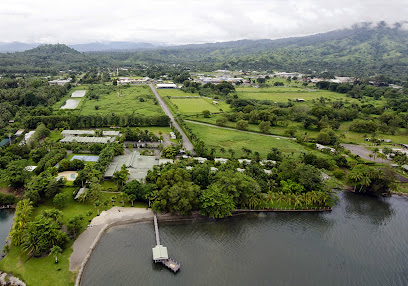
Hotel Genesis
Enjoy a comfortable and welcoming stay at Hotel Genesis, your perfect base for exploring the beauty of Kimbe, West New Britain Province.

Apple Mango Cafe
Experience the vibrant flavors of Papua New Guinea at Apple Mango Cafe, a delightful culinary oasis in the heart of Kimbe, West New Britain.
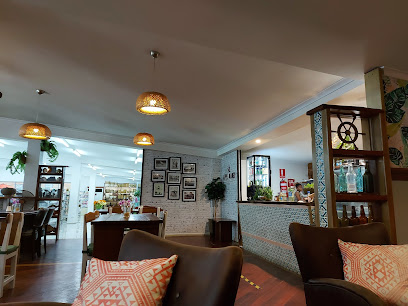
Kimbe Bay Hotel
Experience the beauty of Kimbe Bay at Kimbe Bay Hotel, your serene getaway in Papua New Guinea, perfect for relaxation and adventure.
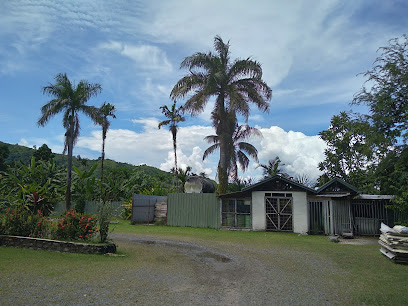
San Remo Club Inc
Discover local flavors and vibrant nightlife at San Remo Club Inc, Kimbe's top bar for drinks and socializing.
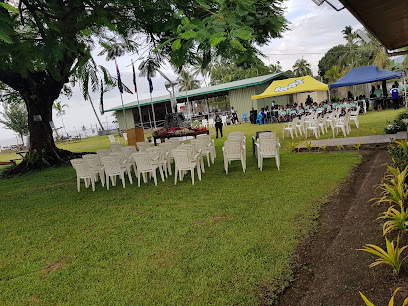
KUNDU CLUB
Discover the vibrant nightlife at Kundu Club in Port Moresby, where locals and tourists come together for memorable evenings.
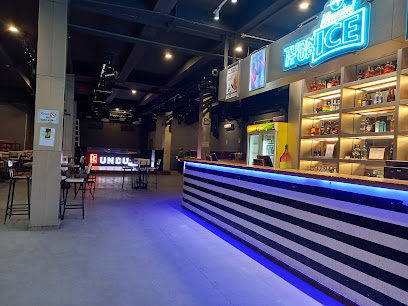
Manaia Guesthouse
Discover comfort and convenience at Manaia Guesthouse in Kimbe, your gateway to the stunning landscapes of West New Britain.
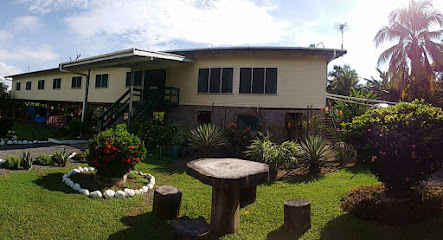
Tikara Restaurant
Discover the flavors of Papua New Guinea at Tikara Restaurant, a culinary gem with stunning ocean views and an exquisite menu.
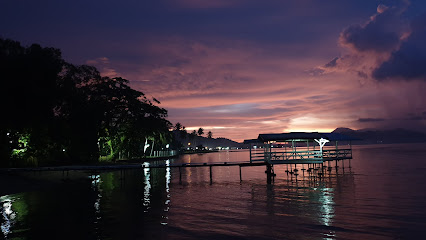
New Management Club -Mosa NBPOL(NMC)
Experience the vibrant nightlife and social scene at New Management Club -Mosa NBPOL, a top bar destination in West New Britain Province.
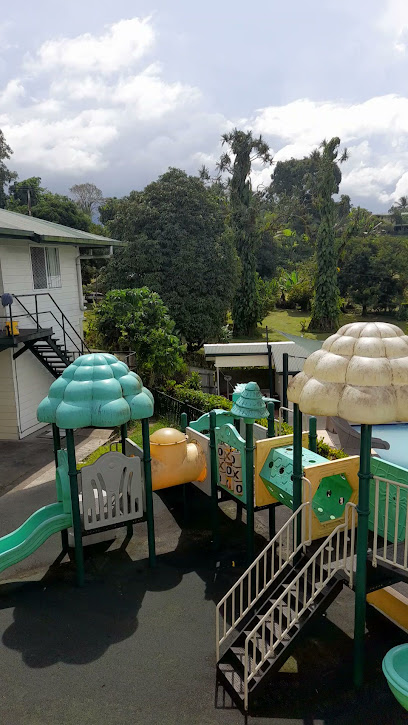
Lobeku Lodge
Experience the tranquility of Lobeku Lodge in Kimbe, where relaxation meets adventure in the heart of New Britain Province.

GFC(Golden Fried Chicken)
Experience the authentic taste of Papua New Guinea at GFC, where crispy fried chicken meets local flavors in a welcoming atmosphere.
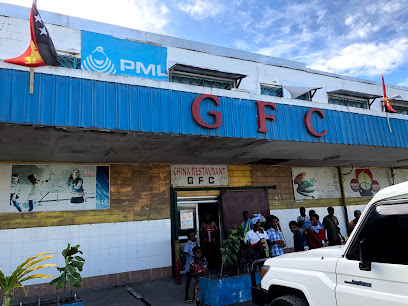
Kokomo Bar
Discover the perfect blend of relaxation and local flavor at Kokomo Bar in Kimbe, where stunning coastal views meet tropical drinks.
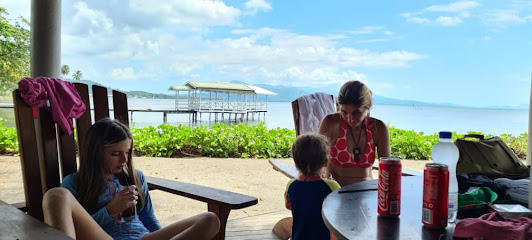
Turtle Coffee Shop
Discover the serene Turtle Coffee Shop at Liamo Reef Resort, offering local flavors, stunning views, and a relaxing atmosphere in Kimbe.
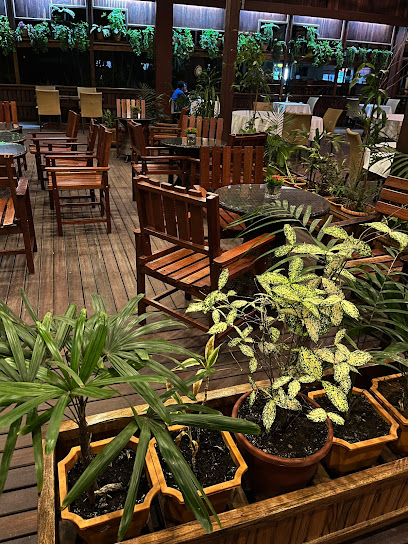
NBPOL KAPIURA MANAGEMENT CLUB
Discover the lively NBPOL Kapiura Management Club, a must-visit bar in Ubai, where local culture meets a vibrant atmosphere for relaxation and fun.

Local Phrases
-
- HelloGut moning
[goot mawn-ing] - GoodbyeGo bi
[goh bee] - YesYes
[Yes] - NoNogat
[no-gaht] - Please/You're welcomePlis
[plees] - Thank youTangkyu
[tang-kew] - Excuse me/SorrySori
[soh-ree] - How are you?Yu stap gut?
[yoo stap goot?] - Fine. And you?Mi stap gut. Na yu?
[mee stap goot. nah yoo?] - Do you speak English?Yu save toktok long Inglish?
[yoo sah-veh tohk-tohk long in-glish?] - I don't understandMi no save long dispela
[mee no sah-veh long dis-peh-lah]
- HelloGut moning
-
- I'd like to see the menu, pleaseMi laik lukim menu, plis
[mee lake look-eem meh-noo, plees] - I don't eat meatMi no kaik kapul
[mee no kaik kah-pool] - Cheers!Bilong gutpela hap
[bee-long goot-peh-lah hahp] - I would like to pay, pleaseMi laik baim, plis
[mee lake bah-eem, plees]
- I'd like to see the menu, pleaseMi laik lukim menu, plis
-
- Help!Help!
[help!] - Go away!Go lusim
[go loo-seem] - Call the Police!Kolim Polis!
[koe-leem poh-lees] - Call a doctor!Kolim dokta!
[koe-leem dohk-tah] - I'm lostMi lusim
[mee loo-seem] - I'm illMi sik
[mee seek]
- Help!Help!
-
- I'd like to buy...Mi laik baim...
[mee lake bah-eem...] - I'm just lookingMi tasol lukaut
[mee tah-sol loo-kawt] - How much is it?Em i kainkost?
[ehm ee kine-cost?] - That's too expensiveEm i stap long spes
[ehm ee stap long spehs] - Can you lower the price?Yu inap lusim pris?
[yoo ee-nahp loo-seem prees?]
- I'd like to buy...Mi laik baim...
-
- What time is it?Wanem taim?
[wah-nehm tah-eem?] - It's one o'clockEm i wan o'klok
[ehm ee wah-n oh-klok] - Half past (10)Long hap pasten
[long hahp pah-sten] - MorningMornin
[mohr-nin] - AfternoonApinun
[ah-pee-noon] - EveningEvenin
[ee-veh-nin] - YesterdayDei ya
[deh yah] - TodayTudei
[too-deh] - TomorrowTumoro
[too-moh-roh] - 1Wan
[wahn] - 2Tu
[too] - 3Tri
[tree] - 4Fo
[foh] - 5Faiv
[fayv] - 6Sikis
[see-kees] - 7Seven
[seh-ven] - 8Eit
[ayt] - 9Nain
[nine] - 10Ten
[ten]
- What time is it?Wanem taim?
-
- Where's a/the...?Wara...?
[wah-rah...?] - What's the address?Em i adras?
[ehm ee ad-rahss?] - Can you show me (on the map)?Yu inap soim mi (long map)?
[yoo ee-nahp soy-mee mee (long map)?] - When's the next (bus)?Nao long taim bai kam namba wan?
[now long tah-eem bah-ee kahm nahm-bah wahn?] - A ticket (to ....)Wan tiket (long ....)
[wahn tee-keht (long ....)]
- Where's a/the...?Wara...?
History of Kimbe
-
Long before European explorers set foot on the shores of what is now Kimbe, the region was inhabited by indigenous Melanesian tribes. These tribes thrived on the rich natural resources, engaging in fishing, hunting, and subsistence farming. Their culture was deeply rooted in oral traditions, with stories and legends passed down through generations.
-
The first recorded European contact with the Kimbe area was in the 19th century by German explorers. By the late 1800s, Germany had established colonial control over parts of Papua New Guinea, including the New Britain island, where Kimbe is located. The colonial period saw the introduction of new agricultural practices, Christianity, and European customs, which significantly impacted the local way of life.
-
During World War II, New Britain, including Kimbe, became strategically important. The island saw significant military action as Allied forces fought to dislodge Japanese troops entrenched in the region. The war left a lasting impact on Kimbe, with remnants of military installations and equipment still evident in the area today. These relics serve as a poignant reminder of the island's turbulent past.
-
After World War II, Kimbe began to develop more rapidly. The introduction of the copra and palm oil industries brought economic growth and an influx of settlers and workers from other parts of Papua New Guinea and overseas. This period also saw improvements in infrastructure, including the construction of roads, schools, and healthcare facilities, which further spurred the town's growth.
-
Kimbe is a melting pot of cultures, with a rich tapestry of indigenous traditions and customs still alive today. The town hosts several cultural festivals throughout the year, showcasing traditional dances, music, and arts. These events are a vibrant celebration of the local heritage and provide a unique opportunity for visitors to immerse themselves in the cultural fabric of the region.
-
Kimbe is renowned for its stunning natural beauty, particularly its marine biodiversity. The area is part of the Coral Triangle, known for its rich marine life and coral reefs. Conservation efforts have been underway to protect these natural assets, involving both local communities and international organizations. The town's commitment to preserving its environment is an integral part of its identity and appeal.
Kimbe Essentials
-
Kimbe is located on the north coast of New Britain Island in Papua New Guinea. The nearest international airport is Hoskins Airport (HKN), approximately 30 kilometers away from Kimbe. Flights are available from Port Moresby, the capital city, and other major cities in Papua New Guinea. From Hoskins Airport, you can take a taxi or a shuttle service to reach Kimbe, which typically takes about 30 to 40 minutes.
-
Kimbe is a relatively small town, and many of its attractions are accessible by foot. For longer distances, local taxis and minibuses are readily available. These are relatively inexpensive and can be hired for short trips within the town or to nearby villages. Renting a car is also an option if you prefer exploring at your own pace, but be aware that road conditions can vary.
-
The official currency in Papua New Guinea is the Papua New Guinean Kina (PGK). While some hotels and larger restaurants in Kimbe may accept credit cards, it is advisable to carry cash, especially when visiting smaller establishments and local markets. ATMs are available in Kimbe, but it is wise to withdraw sufficient cash in larger cities like Port Moresby before traveling to Kimbe.
-
Kimbe is generally safe for tourists, but it is important to take standard precautions. Avoid walking alone at night, especially in unfamiliar areas. Be cautious of your belongings in crowded places such as markets. While there are no specific high-crime areas targeting tourists in Kimbe, it is always best to stay vigilant and aware of your surroundings. Consult with locals or your accommodation for real-time advice on safe areas.
-
In case of emergency, dial 111 for immediate assistance. Kimbe has a local police station as well as medical facilities, including the Kimbe General Hospital. It is highly recommended to have travel insurance that covers medical emergencies. For minor health issues, there are pharmacies in town where you can purchase over-the-counter medications.
-
Fashion: Do dress conservatively, especially when visiting villages and religious sites. Avoid wearing revealing clothing. Religion: Do respect local customs and traditions. When visiting churches or participating in local ceremonies, dress modestly and behave respectfully. Public Transport: Do greet the driver and other passengers when boarding. Don’t eat or drink on public transport. Greetings: Do greet people with a smile and a handshake. A slight bow of the head is also a sign of respect. Eating & Drinking: Do try local dishes and accept food offerings graciously. Don’t refuse hospitality, as it is considered impolite.
-
To experience Kimbe like a local, visit the Kimbe Market where you can buy fresh produce and traditional goods. Engage with locals who are often friendly and willing to share stories about their culture and history. Don’t miss the opportunity to explore the nearby coral reefs, which are among the best in the world for diving and snorkeling. For a unique experience, participate in a local sing-sing, a traditional gathering with music, dance, and costumes.
Trending Landmark in Kimbe
-
Port Moresby Nature Park
-
Lae Botanic Gardens
-
Liamo Reef Resort - Kimbe International Hotel
-
Walindi Plantation Resort
-
BNBM KIMBE BRANCH
-
Kimbe Bay Hotel
-
Kokopo War Museum
-
Genesis Haven Lodge
-
Admiral Yamamoto's Bunker
-
Amelia Earhart Memorial
-
Bomana War Cemetery
-
Manaia Guesthouse
-
Bitapaka War Cemetery
-
Able Home & Office PNG - Kimbe Branch
-
Kimbe Bay
Nearby Cities to Kimbe
-
Things To Do in Rabaul
-
Things To Do in Kokopo
-
Things To Do in Kavieng
-
Things To Do in Lae
-
Things To Do in Madang
-
Things To Do in Goroka
-
Things To Do in Alotau
-
Things To Do in Port Moresby
-
Things To Do in Arawa
-
Things To Do in Mount Hagen
-
Things To Do in Buka
-
Things To Do in Taro Island
-
Things To Do in Wewak
-
Things To Do in Gizo
-
Things To Do in Vanimo









